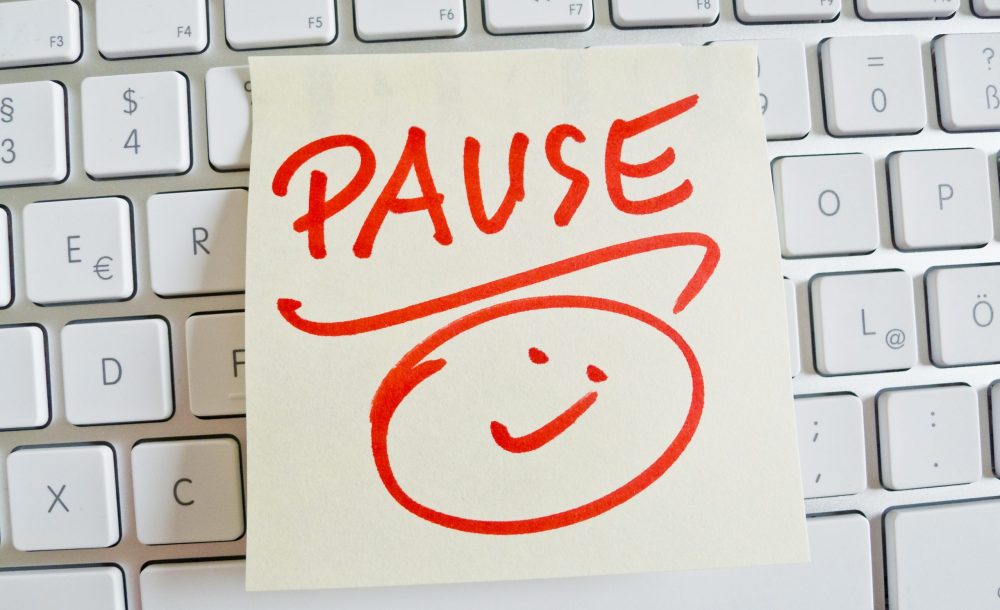Paid search ads not performing the way you’d hoped? Find out how to pause campaigns, why you might want to, and how to get the most out of Google Ads.
Here, you’ll find:
- How to pause Google Ads campaigns
- What happens when you pause campaigns
- Benefits and drawbacks of stopping your Google Ad campaign
- Ways to revamp your campaign without pausing it
Google Ads (formerly known as Google AdWords) is like the hammer of your digital marketing tool box: it’s the workhorse of your search and display campaigns.
No matter your pay-per-click (PPC) budget or which Google Ads mode you work in, this tool, along with your Google Analytics tape measure, is going to be among the most, if not the most, used tool at your disposal.
There are several specific instances in which you may want to consider pausing your campaign. For example, if running your campaign is too expensive, it’s not reaching the right audience, or it’s seasonal in nature, pressing pause may be a good option for you. So without further ado, let’s get into some of the nitty gritty stuff.
How to pause your Google Ads campaign
Let’s start with the practical stuff. If you’ve determined that pausing is the best course of action, here’s what you need to do to pause campaigns:
1. Sign in to your Google Ads account
2. Navigate to the page menu and click Campaigns
Next to each campaign, you’ll see a colored dot indicating the status of that campaign
-
- A green dot means it’s enabled
- A gray dot means it’s paused
3. To change the campaign’s status, simply click the icon and choose Pause to put the campaign on hold
Then. choose “Pause.”
…and you’re done!
As you may have guessed, you’ll take these same steps whether you want to pause or enable your campaign.
What happens when you pause your Google Ads campaign?
Google Ads is intentionally intuitive and user-friendly, so pausing an ad campaign is exactly what it sounds like: simply putting that ad or ad group on hold.
Keep in mind the following while your Google Ads campaign is paused:
- If you’re running any A/B testing or other experiments, they won’t test
- Your campaign won’t gather data, therefore not necessarily bringing any actionable insights
- It won’t generate any leads or sales
- Your campaign won’t cost you anything because you’re not paying for clicks on that ad
It’s important to note that “pausing” and “removing” a campaign are not the same. If you remove a Google Ad or ad campaign completely, it effectively wipes that campaign from existence, Thanos-style. Removing a campaign permanently stops ads from showing, and you won’t be able to create new entities or edit removed entities in a removed campaign. For more on how to remove a campaign, start with this video.
When pausing a campaign, however, it’s more like you’re putting construction on hold and taking a step back to look at what you’ve built with your tools rather than bringing out the sledgehammer and the demolition team.
What can I pause with Google Ads?
Just like with the tools in your tool box, you are in control of your Google Ads — and there are several different approaches to pausing them.
In Google Ads, you have the ability to pause the following:
- Individual keywords
- Individual ads
- Ad groups
- An entire ad campaign, which is what we’re focusing on in this post
Within Google Ads, you can even utilize automated rules to pause Google Ads that meet specific conditions. For example, you could use “ad schedule” if your retail company has a swimsuit sale for the summer season, as you probably don’t want to run those ads in the winter time.
Keep in mind that if you’re running things properly, as co-founder and CEO of HawkSEM, Sam Yadegar, points out, “You’ll likely find yourself pausing mostly on a low level keyword basis as opposed to throwing out the entire kitchen sink.”
What are the benefits of pausing campaigns?
We’ve gone over what happens when you pause a campaign, and some of those bullet points can be considered benefits under the right circumstances.
Another benefit to pausing a campaign, rather than letting it run inefficiently or removing it completely, is that you can pause it for a period of time without having to rewrite it or send it through the review process again. Pausing will also not affect the historical data of the campaign.
If a pause allows you to find a cheaper, more efficient way to run your campaign, you’ll save what you’ve done and move faster when you restart.
What are the drawbacks to pausing a campaign?
Pausing resets a campaign’s quality score and its algorithms, so when you reactivate the campaign, you’ll be essentially starting from zero.
In the same way pausing a Search Engine Optimization (SEO) campaign will affect organic site traffic, pausing PPC campaigns, ads, or keywords will undoubtedly affect the overall performance.
When should you pause campaigns?
Now that we understand some potential benefits and drawbacks, when should you pause campaigns? According to Yadegar, the core idea is to pause based on statistical significance.
Answer this question:
Have you driven enough conversions to determine that the cost-per-conversion is too expensive and you won’t get a return on marketing spend?
This depends largely on the amount of search traffic and conversion volumes on a company-by-company basis. One organization could need just 10 conversions, while another needs 100.
It boils down to this: If your cost-per-conversion and ad cost outweigh potential profit, pausing is probably the way to go.
For a more in-depth look at when you should deliberately pause a PPC campaign, check out this post from Search Engine Land.
What can you do instead of pausing your Google Ads campaigns?
As a marketing professional, you know return on investment (ROI) should be the main driver behind every aspect of designing, launching, and monitoring your PPC campaign. So, before you go around pausing willy nilly, it’s a good idea to do a bit of adjusting before you pause campaigns. Here are some strategies to consider:
Adjust PPC campaign bids
Yadegar mentions that after understanding statistical significance for your campaign, plan A is to start reducing bids to see if you can reach a sweet spot where a return will be generated.
Use the ad schedule tool
Like we briefly mentioned above with the swimsuit ads, if your ads are seasonal or promotional in nature, this is a great way to ensure you’re getting the most out of your ads, and that they’re not mucking up your data when they’re no longer relevant.
Use negative keywords
These tell Google when you do not want your ad to show in a Google search. An example we’ve used before is the negative keyword “careers.” If your business is a bakery, for instance, you might add the negative keyword “careers” so that your 20% off a birthday cake ad won’t show in a SERP for the phrase “bakery careers.”
Optimize your keywords and keep them updated
Similar to your SEO campaigns, the more relevant your PPC ad keywords are, the better your ads will perform.
Pause underperforming keywords
If your cost-per-click is too high, it’s worth looking into which keywords are giving you the best results and pausing any that are underperforming.
In short, strategizing with your keywords will help minimize any wasted ad spend and ensure that you’re reaching the correct audience.
Optimize landing pages
Once someone clicks on your ad, it’s important that your landing page is effective. Does it match search intent? Does it guide the customer to take the action you want them to take?
What happens when you resume your Google Ads?
Once you take your campaign off pause, it’ll take at least a few days for it to start gathering data again. Also keep in mind that the campaign may not start running if you’ve also paused ads, ad groups, or keywords, so make sure everything is ready to go before you enable it!
The takeaway
The pause campaigns feature is an excellent tool to use in the right circumstances, but it’s vital that you have a good understanding of just what those circumstances are before you go pausing for the sake of pausing.
As Yadegar points out, “[It’s important to] make sure we have good financial modeling before we set up campaigns to begin with. But if you’re in the midst of running a campaign and it looks like costs will outweigh profits, it’s definitely time to revisit the strategy.”
To hammer it home, be intentional and smart with your tools — and don’t Thanos your ad campaigns.
Need more help with your marketing strategy or ad campaigns? Learn how HawkSEM can help!



